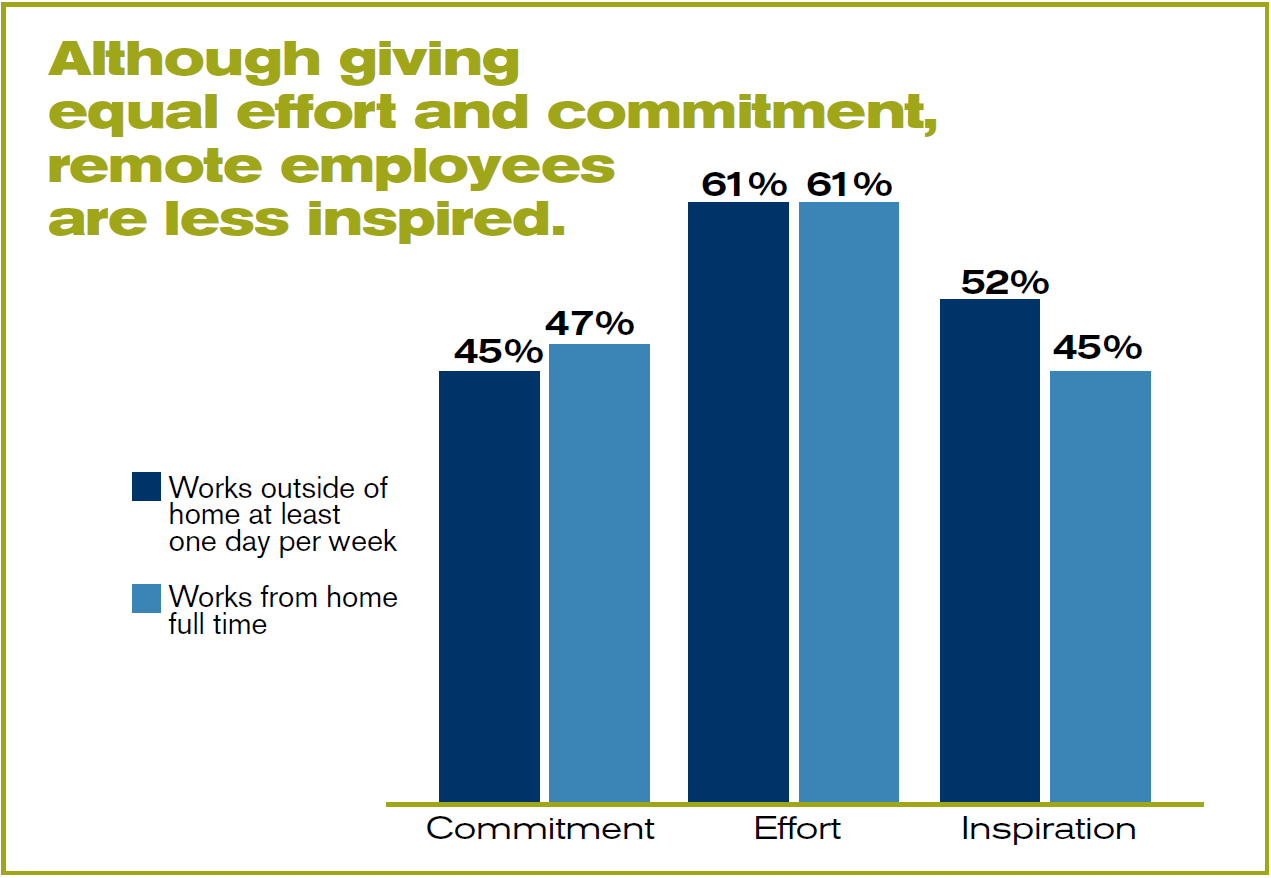How top HR leaders say they'll inspire employees in 2021
In late 2020, we conducted roundtable discussions with HR leaders from Fortune 500 companies and asked them how they are engaging their remote employees around the world. Eight employee engagement trends emerged from these sessions.
Scroll Down
There is no denying the COVID-19 pandemic will have an impact on the future of work, most immediately in 2021 but also for many years to come. The challenge for HR teams everywhere is to understand what trends have emerged and develop a strategic plan that inspires employees to do great work amidst the many changes that have taken place.
This includes rethinking how employee engagement strategies can help transform the new way employees will be motivated to produce results. With the shift of many employees working from home, we wanted to understand the resulting impact on the employee experience. Would remote employees be less engaged or struggle more to be committed, inspired or hard-working?
We found that those who work from home were equally committed and providing equal effort to those working outside the home at least one day per week. However, those who work from home full time felt less inspired.

In late 2020, we conducted multiple roundtables with HR leaders from Fortune 500 companies and asked them how they are engaging their remote employees around the globe. These sessions provided great insights into current strategies, upcoming trends and the opportunity to ideate on strategies to consider for 2021. A key finding was how employee recognition is a strategic component that aligns employees, identifies key initiatives to engage, provides line-of-sight on strategic imperatives and most importantly, inspires your employees.
Though some of the trends we are sharing have been ongoing for some time, some have been amplified with the events of 2020 and its developments. Here are eight emerging trends that resulted from these dynamic sessions.
1. First and foremost, check in frequently with employees and ask how they are doing.
Be sure your managers are having frequent, regular check-ins on a personal level with employees. Empathy and emotional IQ skills for leaders are more important than ever. At a company level, it's also important to ask employees how they are doing and how the company can support their needs. This can be done in a variety of ways, ranging from an online survey to scheduled all-employee meetings facilitated by executives.
2. Promote health and wellness resources.
During these times, it's essential to help your employees maintain strong mental and physical health. Promote the health and wellness tools that are available through your company-sponsored healthcare provider. If you have a formalised wellness program, put a special emphasis on it and promote and reward employees for their participation.
3. Open multiple lines of communication.
Employees need to feel connected to other employees, their managers and the company as a whole. Give them the opportunity to connect with others through multiple communication channels. Channels may include email, messaging systems, chat, team meeting, CEO town hall, company intranet site, blog and web-conferencing.
4. Revamp employee training.
With more employees working from home and companies changing their business models, employees are being asked to take on more responsibilities or move into a different role. Each company's employee training approach must also adapt to these changes. The training medium and content must continue to be engaging and interactive while proving valuable for employees to grow their skillsets.
5. Recognise and reinforce company values and behaviours.
Employees, managers and leaders want tools to recognise each other. Whether it's a simple thank you or to celebrate a major project milestone, employee recognition goes a long way in maintaining a positive work culture. Companies are putting special emphasis on recognising daily behaviours that reinforce their company values, especially around collaboration.
6. Make onboarding new employees a priority.
With more and more companies increasing their hiring, the process for new employee onboarding is a major focus. Companies are finding that if employees don't feel a connection with the company early on, they will leave and look for employment elsewhere. Companies are developing new onboarding introduction kits, specific training for both employees and managers and are assigning peers as onboarding buddies for new hires.
7. Encourage new ideas.
Companies are looking to their employees to drive innovation, not to catch up with the competition but to be in the leader position. To do this, companies are asking their employees to submit new product and process improvement ideas for the future through online portals. Leadership reviews the ideas, votes on the best of the best and forms cross-functional teams to implement them.
8. Have fun along the way.
Employees are being stretched to do more in their work and home lives and many are feeling exhausted and burned out. It's imperative that managers and leaders look for new, fun ideas to give employees a break from their daily routine. Whether it's managers initiating a virtual happy hour to the company facilitating a trivia game, employees still need to have some fun at work.
These trends apply to those who work remotely, in the office or in a hybrid situation. At the heart of each of these trends is the need to create and maintain a connection to foster employee appreciation, motivation and ultimately, retention.
















